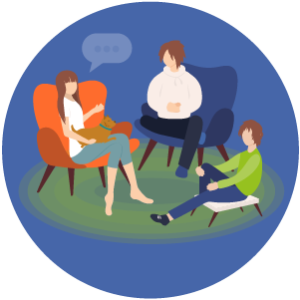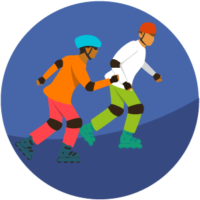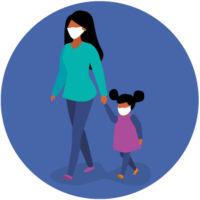
Kids and Coping with Mental Health During COVID-19
It’s been a long year. Yes, a year. On January 21, Washington State reached the one-year mark since the first case of COVID-19 was reported. Since then, we’ve faced closures of schools, playgrounds and have gone mostly virtual.
Though we are doing our best to cope to this “new normal”, most of us are likely not thriving, especially our kids and young adults. In our last blog, we spoke with Dan Barth, the Communications Director with Inland Northwest Behavioral Health, who noted that we are experiencing daily disaster trauma, and this not only affects the adults that are paying attention to the news, but also extends to the kids in our homes.
Dan shared that young people are struggling with their mental health more than any other age group during this time. Youths under 18 are experiencing a higher rate of suicidal ideation in 2020 in comparison to 2019 and have turned to a higher rate of substance abuse and self-harming behaviors to manage the strain caused by the disruptions of this last year.
It’s important to recognize and address the stress and anxiety the children, teens, and young adults in our lives are experiencing. No matter what age, excessive worry, sadness, withdrawal, difficulty concentrating, or frequent outbursts may be signs that additional attention and care are needed in our children.
To ease the frustration and confusion kids have been burdened with at this time, below are a few tips that may be helpful to any age group (adults included!):

Set a Routine
Waking up at the same time every day, maintaining a schedule and having set plans helps minimize the stress of decision making (even minor decisions) on our brains.

Remain Socially Active
Connecting with others, even virtually, has been proven to increase serotonin (a happiness hormone) in our bodies.

Be a Good Role Model
Wearing a mask in public, washing hands and maintaining physical distance in essential public settings sets a good precedent for impressionable young eyes. Our blog written almost a year ago on this topic still holds true today.

Be Available
Make yourself available to listen and to answer questions. Knowing and sharing the facts about COVID-19 can help everyone feel more in control of what is happening.

Find Ways to Relax
Finding joy in meditating, exercising and other enjoyable hobbies is key to making positive memories.
Remember, getting vaccinated is a vital tool in preventing the spread of COVID-19 and for returning to normal. Until then, remember to take special care of those around you and yourself by following health measures. Currently, we are working with multiple agencies to ensure swift vaccinations for our county and state. The light is at the end of the tunnel. This is for now, not forever and your patience, support and care for our community is appreciated.
For family resources, visit:
For Your Family | Spokane Regional Health District (srhd.org)
Mental Health & Coping | Spokane Regional Health District (srhd.org)
